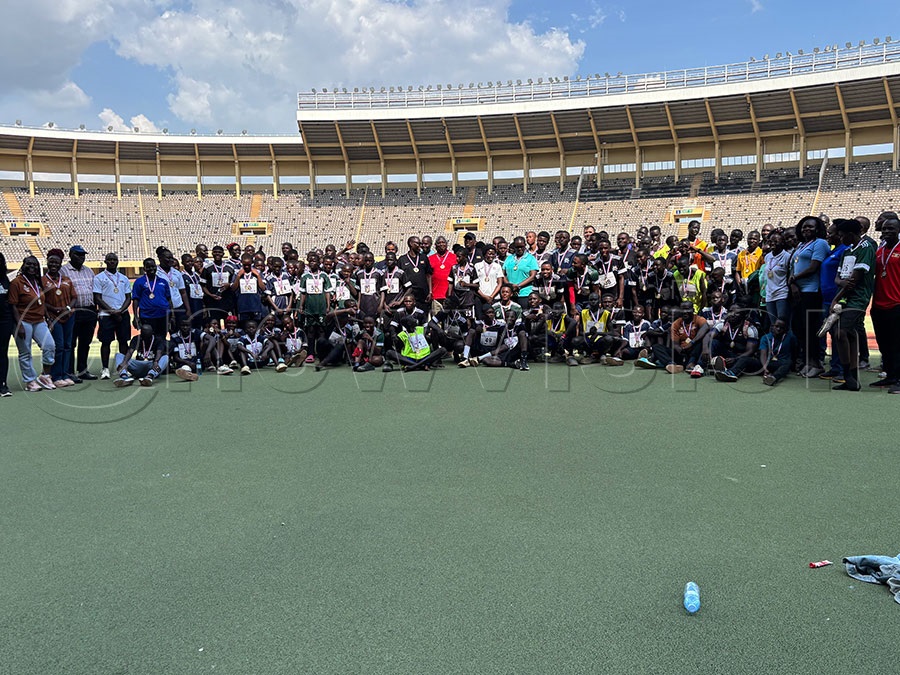Adjumani athletes dominate Uganda’s refugee trials for Youth Olympics
The one-day trials, held at Mandela National Stadium (Namboole), featured a range of sprint and middle-distance races for both boys and girls
PHOTOS: Julius Kafuluma
By Julius Kafuluma
Journalists @New Vision
The Uganda Olympic Committee (UOC), in partnership with the Uganda Athletics Federation (UAF), has launched national trials for refugee athletes who aim to represent Uganda at the upcoming Youth Olympic Games in Dakar, Senegal, and the 2028 Olympic Games in Los Angeles.
More than 100 young athletes from four refugee settlements—Kampala, Rwamwanja, Adjumani, and Kyangwali were selected to compete for 10 slots on what will become Uganda’s first-ever national refugee athletics team.
The one-day trials, held at Mandela National Stadium (Namboole), featured a range of sprint and middle-distance races for both boys and girls, including the 100m, 200m, 400m, 800m, 1500m, and 3000m events.

In the 100m races, Florence Kabuo from Rwamwanja claimed the women’s title in 15.31 seconds, while Adjumani’s Peter Nyamara won the men’s event with a time of 12.32.
Adjumani continued to impress, with Gladys Aniga winning the women’s 200m in 27.63 seconds and Kampala’s Kalume Moise taking the men’s category in 25.84. Adjumani maintained its dominance in the 400m races through Nyaluak Biling and Akol Tor Akol, who won the women’s and men’s categories respectively.
Rwamwanja and Kyangwali settlements shone in the middle-distance events. Rwamwanja’s Masumbe Florence claimed the women’s 800m, while Kyangwali’s Rashel Dudenge triumphed in the 1500m. Adjumani bounced back in the 3000m races, with Irene Lamuno and Clement Lole taking top honours in the women’s and men’s categories. Overall, Adjumani Settlement topped the medal tally with 11 victories from 16 categories, followed by Rwamwanja and Kyangwali with two wins each, while Kampala registered one.
The crowd at Namboole was thrilled by the relay races, particularly the 4x100m and 4x400m boys’ events, both dominated by Adjumani’s quartet of Akol Tor Akol, Mariel Bhut, Tiel Mabil, and James Kenyi.
Organized in collaboration with Game Connect, AVSI, and Youth Sport Uganda, the event drew praise from Refugee Olympic Team Manager Gonzalo Barrio, who noted the athletes’ enthusiasm and highlighted that many were racing on a track for the first time. He described the trials as deeply inspiring and confirmed that training will continue ahead of the final selection next year, when Uganda will officially name its first Olympic refugee team.
Barrio also emphasized the International Olympic Committee’s commitment to universality in sports, explaining that refugee athletes cannot compete for their countries of origin or host nations. The mission, he said, is to ensure they still have a pathway to pursue their athletic careers.
UOC President Dr. Donald Rukare lauded the initiative as a powerful step toward social inclusion and healing through sport. He noted the immense talent on display and underscored the role of sports in restoring hope and supporting the mental and social well-being of refugee communities.
Representing the National Council of Sports (NCS) General Secretary Dr. Bernard Ogwel, Milton Chebet commended the UOC and its partners for promoting inclusivity. He remarked that the trials showcased true inclusion in sport, benefiting both refugees and host communities.
The selected athletes will now undergo intensive training ahead of the Youth Olympic Games in Dakar. The program also serves as a pathway to the 2028 Olympic Games in Los Angeles, where Uganda aims to make history by fielding its first refugee athletics team.
SELECTED WINNERS
100m Final (Girls)
Kabuo Florence (Rwamwanja) 15.31
200m Finals (Girls)
Aniga Gladys (Adjumani) 27.63
400m Final (Girls)
Nyaluak Biling (Adjumani) 1.13.3
800m Finals (Girls)
Masumbe Florence (Rwamwanja) 2.49.60
1500m Finals (Boys)
Riak Biyang (Adjumani) 4.41.9
3000m Final (Boys)
Clement Lole (Adjumani) 10.08.51
